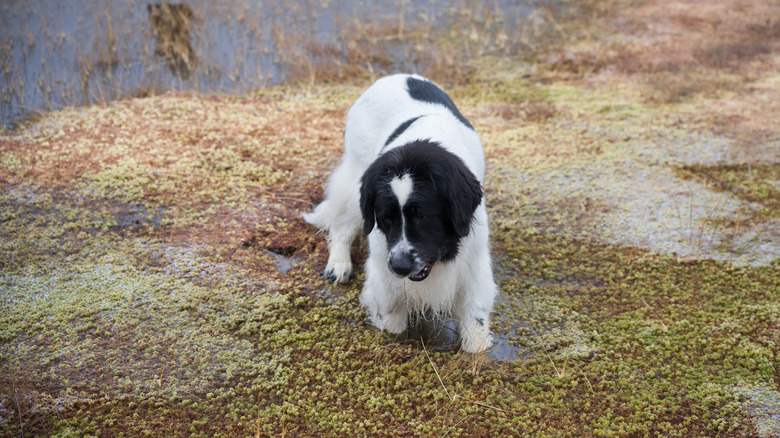Is Peat Moss Toxic To Dogs?
Peat moss is a common soil additive used by gardeners around the country, and it is also found in some commercial potting mixes. While peat moss is not considered toxic to dogs, your canine may experience an upset stomach or vomiting if he ingests it.
What is peat moss?
Peat moss is a plant material that has decomposed in bogs in areas throughout the world, including Canada, Russia, and northern Europe. Sphagnum moss is the most common source of peat, and the live moss grows on top of the bogs. Peat is harvested and dried and is formed into bales, pellets, or pots to be sold.
Gardeners amend the soil with peat moss to increase soil quality and aeration. It is also useful in making the soil more acidic. Soilless potting mixes frequently contain a large amount of peat moss.
Peat moss toxicity considerations
Peat moss is not toxic to dogs nor is the live plant, sphagnum moss, listed on the American Society for the Prevention of Cruelty to Animals list of toxic plants for cats and dogs. This does not mean that your dog will suffer no ill effects from ingesting peat moss, however. Any plant material, even nontoxic materials, can cause mild digestive upset and vomiting.
Live sphagnum moss, while not toxic, may carry the fungal skin disease cutaneous sporotrichosis, so it is best to ensure your pup doesn't get into this live plant material. Peat moss, on the other hand, has not been found to carry the fungus and is generally considered sterile. While it is not sterilized after it is harvested, the bogs where the moss is produced tend to be highly acidic with few minerals, making it inhospitable to many harmful bacterial and fungi.
Common garden dangers
Peat moss may be safe for your dog, but there are many dangers of which to be aware in your home garden. Some mulches and soil additives, such as cocoa mulch, are toxic to pets. When adding plants to your landscape or home, be sure to check with your veterinarian or the ASPCA's toxic and nontoxic plants list to ensure that they are safe for your dog. Some popular plants, such as lilies and daffodils, are extremely toxic to dogs.
In addition, many gardeners use a variety of chemicals that can be extremely toxic to their pets. Some examples include fertilizers, insecticides, and herbicides. If you have a bird feeder, be aware that any seeds that fall on the ground can quickly become moldy, which can cause serious problems for your pup. Other potential hazards include mushrooms, toads, snails, and slugs.
When to consult a veterinarian
If you know or suspect your pup has eaten a toxic substance, contact your veterinarian, the ASPCA's Poison Control Center, or the Pet Poison Helpline right away. The longer you wait, the more poison your pup's system will absorb, so the sooner you get treatment the better. If your pup is having trouble breathing, take her to an emergency clinic right away.
If possible, take a sample of the plant that your pup has ingested so that your vet can confirm the cause of the poisoning and determine the best treatments. Do not attempt to induce vomiting or administer any home remedies unless advised to do so by a veterinarian.
